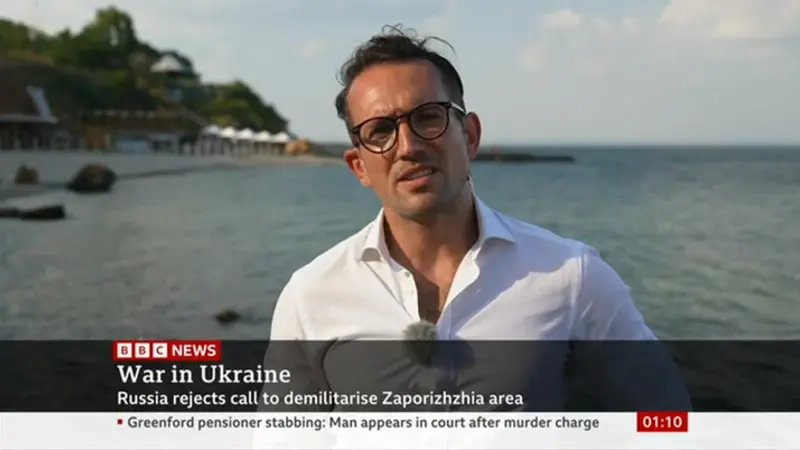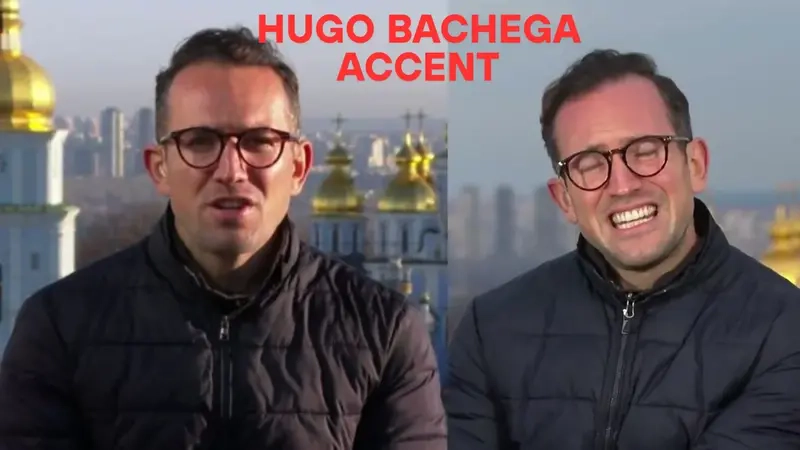When it comes to international journalism, Hugo Bachega’s name stands out—not just because of his sharp reporting but because of Hugo Bachega Accent. It’s that mix of his Brazilian roots and the British English he picked up working abroad that makes his voice so easy to recognise and honestly quite charming.
In this article, I’ll walk you through what makes his accent special, how it reflects his background, and why it adds a certain warmth and personality to his reporting. Whether you’re curious about Hugo himself or just interested in how accents shape the way we connect with news, stick around—it’s a cool story.
Quick Profile of Hugo Bachega
| What | Details |
|---|---|
| Full Name | Hugo Bachega |
| Nationality | Brazilian |
| Job | Journalist, Foreign Correspondent |
| Employer | BBC |
| Languages | Portuguese, English |
| Topics Covered | Global conflicts, politics, humanitarian issues |
| Experience | Over 10 years |
So, What Exactly Is the Hugo Bachega Accent?
Hugo’s accent is basically a blend of two cultures. Growing up in Brazil, he naturally spoke Portuguese with that smooth, musical rhythm you hear there. But after years working in the UK, especially with the BBC, his English got that crisp, clear British vibe.
Put them together and you get a voice that’s warm and friendly, but still professional and easy to understand. It’s not too heavy or too neutral—just the right mix that makes people want to listen.
Breaking Down Hugo Bachega Accent
| Feature | How It Sounds |
|---|---|
| Vowels | Soft, flowing with a hint of Portuguese melody |
| Consonants | Clear and sharp, every word easy to catch |
| Rhythm | Smooth British pacing with a natural flow |
| Stress | Emphasizes important words to keep you engaged |
| Speed | Moderate—never rushed, always easy to follow |
How Does This Accent Help Him in His Career?

In journalism, your voice is your signature. Hugo’s unique accent makes him stand out and adds a genuine feel to his stories, especially when reporting on heavy topics like wars or humanitarian crises. Visit my website for lifestyle information.
People don’t just remember what he says—they remember how he says it. His voice builds trust because it’s real, relatable, and reflects a unique perspective that blends his Brazilian roots with international insight. That’s pretty powerful in today’s media world.
His Career Journey and How His Accent Changed
Hugo started out reporting in Brazil in Portuguese. But once he moved to the UK and started working internationally, his English sharpened, and so did his accent. The Brazilian warmth stayed, but he picked up a polished British style that makes him sound both worldly and approachable.
It’s a great example of how modern journalists mix cultures, languages, and experiences to connect with a global audience.
Why Do People Love Hugo Bachega Accent?
If you scroll through social media or watch viewer feedback, you’ll notice people really appreciate his voice. They say it feels fresh and genuine—something that makes watching the news a bit more enjoyable. In a sea of similar-sounding anchors, Hugo’s voice adds that personal touch.
Accent and Audience: Why It Matters
| Benefit | Why It’s Important |
|---|---|
| Easy to Remember | His voice sticks with you after the report ends |
| Builds Trust | Authentic accents make news feel more credible |
| Appeals Globally | His mixed accent connects with viewers worldwide |
| Creates Connection | Makes viewers feel closer to the stories he tells |
The Challenges of Having an Accent in News Reporting
Of course, having an accent can be tricky in journalism. You need to be clear, fast, and understandable to a wide audience. Hugo works hard to keep his speech clear and easy to follow, balancing his natural tone with professional clarity.
That might mean lots of practice and maybe some coaching to hit the right balance.
Why Multicultural Accents Matter in Media Today
Hugo Bachega is proof that the media world is changing. Multicultural accents like his bring fresh perspectives and help make news more inclusive. It’s not about fitting into one mould anymore—it’s about celebrating different voices and experiences to tell stories that matter.
Quick Recap: What Makes Hugo’s Accent Special?
| Aspect | Why It’s Important |
|---|---|
| Blend of Portuguese & English | Warm, unique sound that stands out |
| Clear Pronunciation | Easy for everyone to understand |
| Engaging Tone | Makes news feel personal and trustworthy |
| Cultural Mix | Reflects his Brazilian roots and global career |
| Professionalism | Keeps things polished without losing natural charm |
Final Thoughts
Hugo Bachega Accent isn’t just about how he sounds—it’s part of his identity and what makes his journalism so compelling. That mix of Brazilian warmth and British precision gives him a voice that’s authentic, trustworthy, and relatable.
In a world where people crave real connections, Hugo’s accent acts like a bridge—helping viewers hear complex stories in a way that feels genuine and human. It’s a reminder that sometimes, it’s not just the story but how it’s told that makes all the difference.


